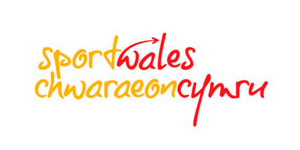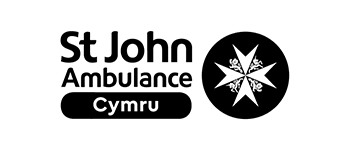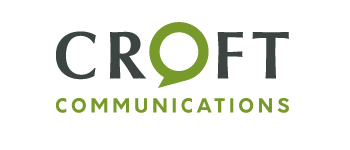Lockdown and sport across the Home Nations
The effects of lockdown have hit the sporting community as much as any other, with people being confined to their homes whilst sports clubs, facilities and events have been ground to a halt as the country battles to control the Covid19 pandemic.
As well as the well understood physical, social and mental health benefits of sport, the importance of the sporting sector to the UK economy cannot be underestimated. Statistics released by the Department for Digital, Culture, Media and Sport revealed that there were 570,000 employed in the sport sector in the UK in 2018, accounting for 1.7% of all jobs. A report into the Social Return of Investment of Sport published by Sport Wales found that, in Wales alone, sport created £1.1 billion for the Welsh economy in 2016/17, with every £1 invested into sport yielding a return of £2.88 in social value. Further research carried out by the Sport Industry Research Centre has highlighted the value of the sporting sector in the UK.

As the UK takes its first tentative steps into reopening society, we are seeing how the different nations and their respective sporting bodies and organisations are navigating sport and physical activity out of lockdown. We are also seeing how the UK nations are supporting the sport sector financially so that it can come through this period and return to playing a such a vital part in society and the economy.
Wales
On the 15th May the Welsh Government published its roadmap for Unlocking our Society and Economy. This includes a traffic light system for lifting lockdown measures on different areas of society. The roadmap notes that there will not be wholesale moves from one phase to the next and that it is likely that some aspects of society will move forward quicker than others. There is no set time frame on when Wales will move through each phase. The Government is to review the measures every three weeks.
The rough framework for the sporting sector in Wales is set out below. The latest easing of lockdown measures on 1st June permitted people from up to 2 households to meet outside in small groups, whilst maintaining social distancing. There has also been an easing of travel restrictions, with people being allowed to travel within their local area for the purposes of exercise. Physical activity outdoors in Wales is now limited by access restrictions and social distancing regulations. It is hoped that the next lockdown review on 18th June will allow further facilities such as outdoor sports courts to re-open to the public.

There is continuous communication between the Welsh Government, the WSA, Sport Wales, national governing bodies, facility providers and other interested parties on how sport in Wales can tackle the challenges that lie ahead. Planning groups for the different sporting sectors (indoor sport, outdoor sport, sport and leisure facilities, elite sport) meet twice weekly and feed evidence and make suggestions to the Welsh Government on how each sector can safely re-open.
Wales has also seen a comprehensive support package being made available to the sport sector. The Welsh Government Business Grants scheme was extended on 1st April with a further £26 million made available to help small charities, including sports premises and community centres, which were not previously eligible for support.
On 1st April it was announced that an Emergency Relief Fund of £400,000 from the Welsh Government and Sport Wales had been set up to help not for profit sports clubs in need of immediate financial support as a result of the Coronavirus and recent flooding. This emergency fund has since been increased to £550,000.
From July, a Sport Resilience Fund of £8.1 million made up from the Welsh Government and National Lottery funding will be managed by Sport Wales to provide continued support to the sport sector.
Further details on the range of support and funding available to the sport sector in Wales can be found on the WSA website.
The eligibility checker for the next round of the Economic Resilience Fund, managed by Business Wales is now available. Applications for the £100 million fund will be open soon.
England
On 10th May the UK Government revealed its plans on the phased easing of lockdown in three steps. These would only take effect in England, allowing the devolved nations to devise their own strategies. The first step, effective as of 13th May, permitted the re-opeing of facilities associated with outdoor sport and physical activities on the basis that this could be done safely by maintaining social distancing and by following hygiene guidelines. This allowed people in England to use places such as basketball courts, tennis courts and golf courses either alone or with members of the same household.
Stage 2 of the phased re-opening in England came into force on 1st June and allowed groups of 6 people (from up to 2 households) to meet outside, whilst also lifting any restrictions on how far the public can travel for exercise. Domestic competitive sport was also permitted to resume behind closed doors.
Stage 3 is planned to be actioned on 4th July, and will likely see further restrictions lifted on sport and recreation, including the opening of more leisure facilities and increased numbers of participation. Further guidance on the specific sectors are to be provided closer to the time.
As well as the UK Government’s support for businesses and employees affected by the Coronavirus, Sport England are managing £210 million support package made up of National Lottery and government funding to help the sport sector during the crisis. Additionally, they have introduced significant flexibility in terms of existing funding available to organisations and partners to enable them to deal with the immediate effects of the pandemic.
Scotland
Scottish Parliament revealed its route map through the crisis on 21st May. Again, the easing out of lockdown will be a phased approach with 4 planned phases, to be reviewed every 3 weeks.
The first phase, effective as of 29th May, allowed people in Scotland to meet outdoors with members of another household (up to a maximum of 8 people) and to travel short distances for outdoor and leisure exercise. As in Wales, travel is restricted to within the local area, with 5 miles being a general rule. Outdoor non-contact facilities are permitted to re-open on a restricted basis. Tennis Scotland, for example, have released guidance to venues, coaches and players on how to return to play in line with government guidelines.
Phase 2 will allow people to meet in larger groups (with social distancing) and open the door for the re-opening of further outdoor facilities. The resumption of professional sports behind closed doors will also be permitted in line with public health advice.
Gyms and indoor facilities will be able to open during phase 3, subject to distancing and hygiene measures. People will also be permitted to drive beyond their local area for leisure and exercise purposes. There is no specific guidance on how stage 4 will affect the sport and leisure sector as of yet, though it is likely that social distancing and hygiene measures will still be in force.
Sport Scotland have agreed to the early release of 6 months annual investment, worth £16.4 million, to the sport governing bodies and partners. Any targets and outcomes related to the funding have also been relaxed so that they may focus on mitigating the costs of the immediate impact on operations. It is also hoped that this strategy will protect an estimated 1,600 jobs in the sports sector.
Northern Ireland
A 5 stage recovery plan for Northern Ireland was released on 12th May. There are no fixed dates as to when any restrictions can be lifted, though it is hoped that the final stage can be reached by December 2020.
Stage 1, currently active, allows the opening of outdoor spaces and public amenities. Activities such as golf, tennis and watersports are permitted whilst practicing social distancing. Steps 2 and 3 will see the resumption of team sports training on a non-contact basis and in small numbers.
Competitive sports behind closed doors will be allowed to resume at stage 4, as will the opening of leisure centres and indoor facilities on a restricted basis. At stage 5, close contact sports will resume as will the full use of sporting facilities in line with public health guidelines at the time.
Sport Northern Ireland have published a Framework for the Resumption of Sport in line with the executive’s plan. As in Wales, sport has been divided into categories (outdoor recreation, water sport, non-contact sport, low risk contact, high risk contact and elite professional sport). The framework uses a traffic light system to represent each phase of the executive’s plan and provides guidance to each category on how they can resume activities through each stage.
Northern Ireland are in a unique position in that some sports are attached to the whole of Ireland, some with the UK and a few with Northern Ireland only organisations. This will inevitably make the process of aligning each category through the phases a more complex operation.
Similar to England and Scotland, Sport Northern Ireland have also allowed the early release of existing funding for the coming year to help keep the organisations afloat in the immediate aftermath of the pandemic. Again, any usual targets attached to the funding have been relaxed.
Sport Northern Ireland have also been managing a Sports Hardship Fund of £550,000 by the Department of Communities to deliver funding to clubs and organisations experiencing immediate financial hardship. Successful applicants were able to receive up to £2000 towards essential overheads that are no longer supported by revenue as a result of lockdown. As of 16th April, the fund has been exhausted and no new applicants are being considered.
The importance of having a healthy and active nation is arguably more important now than ever before. Going forward there is clearly going to be a delicate balancing act between re-introducing sports into daily life and keeping the public safe.
We have already seen how governments, sports associations, governing bodies and organisations are collaborating to bring the sport sector through this difficult time. Continuing clear communication within the sport community and with the general public will be vital in getting sport back on its feet.



















